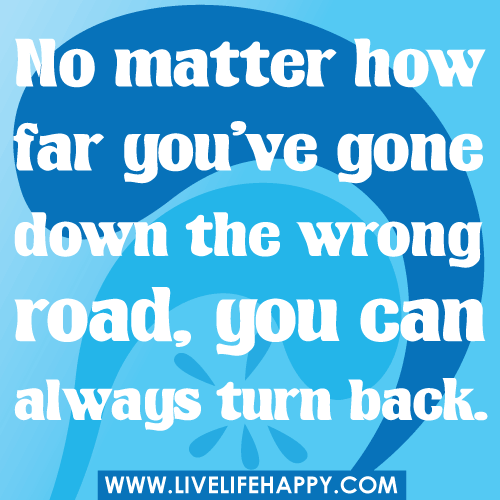[
Who am I to give you advice? Nobody special, that's for sure. But I have been a teenager. And I survived it. And when I read folks giving you advice that is so bad it makes me cringe, especially in the name of God, I just have to offer my own voice as a reminder that the hard road you travel has others along the way to offer you some guidance. I hope it helps.]
This is for every teenager I have known or will ever know and even for those I’ll never meet. If you (even accidentally) come across a web site with dating advice, please, please, please, let someone with a little age on them that you trust read it first – especially when they bring God into it.
Why do I say that?
Because I just read one. Please don’t read it (it was so foolish and wrong that while I’ll mention some of the things they said, I will NOT include the site in this post – it’s poison). Please. Or if you must, read this first.
***
You are more than your body parts.
You are wonderful.
God adores you.
God wants the best for you.
The best may not be what you’ve gotten.
That sucks.
If that’s true for you, somewhere in your life is someone with some age on them who can help.
Choose that person wisely.
They won’t lie.
They won’t tell you it’s easy.
They won’t feed you a line of crap.
They won’t tell you it’s your fault or make you feel like it is.
If they do, run from them as fast as you can.
Because those are lies and they are liars.
So . . . what do I have to say to the folks who pretend to be giving you good advice about dating?
***
Dear Hayley & Justin:
Words matter.
Given what you both do for a living, I know you get that.
They matter.
Always.
And especially with the young.
They may not know better.
But you do.
Here’s another simple rule: you can’t get a right result the wrong way.
Dr. King put it something like this: ends and means must cohere.
What’s my point?
Simply this: you can’t give sound advice to the young about their sexuality and its expression with crap advice about what it means to be male or female.
Crap advice about what it means to be male or female leads to crap decisions about interactions between male and female.
Get it?
So on to the specifics:
1.
Your 1st rule for girls is to accept being a girl. Okay so far. But then you go on to define being a girl as being
‘soft’ and ‘gentle’. According to whom? Really – I’d like to know. According to whom are girls, by definition, soft and gentle? What about the girls who just aren’t? Aren’t we girls too? And since you’ve brought God into the conversation, just where in the Bible are girls or women defined as soft and gentle? In actual fact, St. Paul calls all believers to a way that is soft and gentle. He even uses the word gentle: Galatians 5.23 (fruits of the spirit); Galatians 6.1; Ephesians 4.2; Philippians 4.5; 1 Timothy 6.11 (speaking to a man); 2 Timothy 2.25 (how to deal with an opponent); 2 Corinthians 10.1 (describing himself and Christ as gentle); and 1 Corinthians 4.21. And that’s just Paul.
2.
Dateable girls aren’t downers. It’s a fair point to speak about our inner beauty. And to encourage inner peace. But “dateable girls aren’t downers”? Did you really just say that? How about happiness for its or our own sake? How about – just this once –
not making our happiness, even as a goal, something to be striven for in order
to attract a man? How about it – just this once – being for our own sake? How about pointing out that dating, sometimes fun, sometimes not, is not the be-all and end-all of our existence? How about stressing our fundamental identity as child of God
for its own sake? Or even a little footnote about what to do if you find that you are unhappy all the time, instead of implying that unhappiness is somehow the ‘fault’ of the one experiencing it?
3.
Believe in your beauty – doesn’t sound so bad – if you leave it there. But you don’t. “Dateable girls learn how to overcome the sins of the past that have been perpetrated on them.” Are you kidding me?
Did you just advise a girl who may have been raped or sexually abused to get over it? Did you really just tell her that it ain’t pretty to be affected by what’s happened to her? Did you really make her experience trite by relating it to dating advice? Really? And it doesn’t end there, does it? Because in comparing this to the advice for the guys, it’s clear that guys are actors and girls are the acted upon. Neither is true. We are all one or the other at different times. The reason stereotypes are bad is because they’re not universal truths (which is what they claim to be); thus, for those for whom your stereotypes do not ring true, especially for teenagers, the result is often self-blame. So the girl or guy who has been wounded and who can’t just get over it is left feeling as if it is their fault.
And it isn’t. And then you tell the guys to believe in themselves while telling the girls to believe in their beauty. You can say all you want that it’s about inner beauty, but we all know better, don’t we? You’ve just told girls to believe in their looks or appearance, while telling guys to believe in their abilities. Same old shit, different day.
Shame on you!
***
Ladies and gentlemen of the teenage variety, please, please, please, know some things:
1.
Physical attraction is just that. It has its place, but it is not defining of the whole you.
2.
Nothing lasts forever – not this feeling, not this moment in time, not this stage in life, nothing.
3.
It will get better. Life is pretty hard for everyone, but these feelings of worthelessness, of not fitting into your own body, of feeling different from everybody else – these feelings largely pass away and it does get better. Some days you know that. But some days you just have to hang on and trust that we old fogies really have walked in your shoes and know a few things – like, it will get better.
4.
God adores you. You. Just as you are you. Even when you mess up. Even when no one else does. Even when you don’t. God does. Always and all the time. Really.
5.
We don’t tell you to wait because it’s bad not to. We tell you to wait because it’s better – in every way (and yes, I mean that too) better – to wait. It’s not about punishment. It’s about gift. Your body is an amazing gift. Treat it like it is your very best friend.
6.
Yes, we – your parents, teachers, adult friends, are all about being up in your business. You don’t have to like it. But it is our job. If we’re not up in your business, we’re not doing our job. That simple. Be mad at us. That’s okay. But we’re going to keep doing our job because it is our job. Some day it’ll be your job. In the meantime, try to remember that it is our job because we know some things – really. You’re smart. You know that. Even if you don’t like it, you know it.
7.
If someone hurts you sexually, it is NOT – NOT, NOT, NOT – your fault. And you deserve to be helped. And there is help to be had. There are hotlines. And there are wise adults out there. If you don’t find a wise one the first time, keep looking.
8.
Trust is something earned, not demanded. When someone demands that you trust them, that’s usually the time to run. Trustworthy people do not have to even say the word trust, let alone demand that you give it. If someone does something untrustworthy, they are not to be trusted.
9.
Sex is not love. Sex is sex. Sex can become a part of the expression of love, but it is not love. Love is caring for another enough to not have sex, not to insist on it. When someone insists on having sex, they are thinking about themselves and not about you. That is not love.
10.
“I don’t want to” may not be a good enough reason not to clean your room, but it is ALWAYS a good enough reason not to have sex. Married folk (in a good marriage anyway) know this – both partners are ALWAYS allowed to say no. When it comes to sex, you do not EVER have to explain yourself. No is no. End of conversation.
11.
You are beautiful simply because God made you and God does not make junk. Sex does not prove you are beautiful. Sex just proves you’re human. But you already knew that, right? So why bother proving it?





